WesNEAT Explores University’s Activist History in Archiving Kickoff
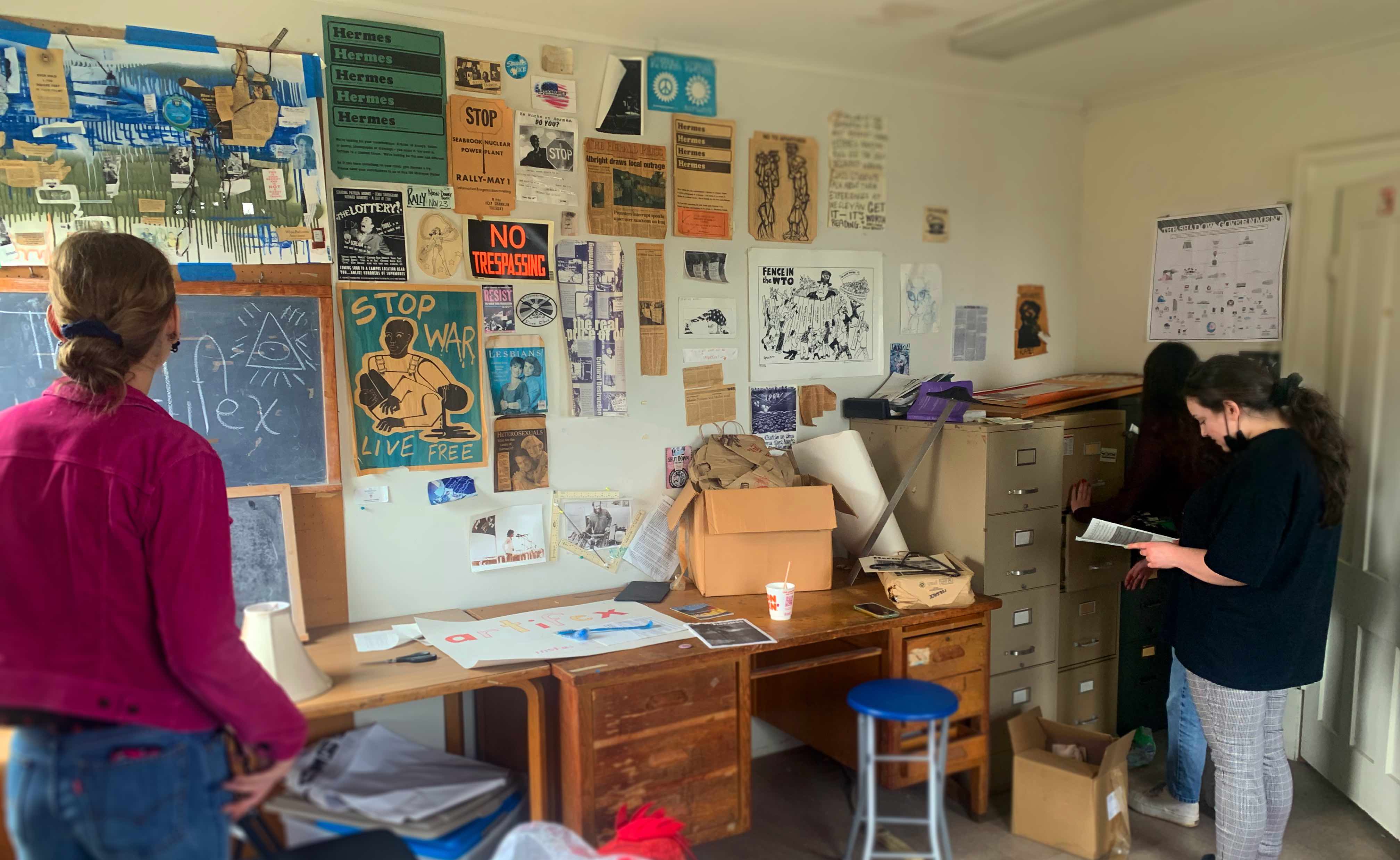
The Wesleyan North End Action Team (WesNEAT) began the process of archiving and digitizing the documents and resources housed in the University Organizing Center (UOC) with a kickoff event on Saturday, April 16. The event brought around half a dozen students together in the UOC to begin the project, which is expected to be an ongoing endeavor.
Since reopening at the start of the Spring 2022 semester, the UOC, located at 190 High St., has served as a hub of student activism and involvement both on and off campus. Many student activist groups currently use the space to meet and organize, including the United Student/Labor Action Coalition, Wesleyan Democratic Socialists, Sunrise Movement Middletown Hub, and the recently-formed Wesleyan Union of Student Employees. Now, WesNEAT hopes to preserve the building’s history and records for posterity.
“Institutional memory of Wesleyan among students doesn’t last very long,” WesNEAT Student Coordinator Elena Brennan ’24 wrote in an email to The Argus. “Every few years there’s a totally new group of students who are often unaware of what existed in the generations before them. This can have a disjointing impact on student activist[s] as a whole.”
The plan to create a student activism archive was announced at WesNEAT’s first full-group meeting of the semester on Wednesday, Feb. 23, where the group outlined the major goals of the project. WesNEAT Student Coordinator Lincoln Alkind ’22 noted that the UOC’s reopening gave WesNEAT a unique opportunity.
“We got together and we were trying to figure out exactly what we wanted to do on campus this semester,” Alkind said. “As we started to see groups use the UOC again after it was closed during the beginning of the pandemic, we wanted to see how we could make it as useful as a space for ongoing activism as possible.”
Alkind explained that WesNEAT wanted to build on the UOC’s physical space by offering additional informational and historical resources.
“We realized that one of the ways we could do that was just sort of [seeing] everything that was there and see our history and make that more accessible for everyone in case they ever wanted to reference it and also get to see all of the really cool stuff that people have done over the years,” Alkind said. “So we started putting this together.”
After a training session with University Archivist Amanda Nelson on Thursday, March 24 to ensure that the group was using best practices to preserve, compile, and handle historical materials, the WesNEAT coordinators began working towards the project’s official kickoff.
“We had some meetings as coordinators, just thinking about who we wanted to have involved in this, who we could reach out to,” Alkind said. “So we reached out to some other groups, including like the Sunrise Movement folks, because they were interested in archiving. Then, we set up our first day to get people into the space and just see what we have.”
On Saturday, April 16, the team got to work, beginning by exploring the UOC’s many rooms and their contents, scoping out the task ahead of them, and settling into the former home of the now-defunct publication The Wesleyan Hermes.
“I had never heard of [The] Hermes before, which used to be a student-run political and social publication on campus,” Brennan wrote. “The quality and the depth of the publication was so incredibly impressive…. Given how impressive and influential the publication was, it’s sort of surprising that I didn’t even know it existed which speaks to the importance of efforts like this one.”
In the upstairs office, the group explored various file cabinets filled with issues of The Hermes dating back to the 1970s. WesNEAT member Julissa Cruz ’25, who works on the team’s archival and research projects, believes that preserving this publication is one of the most important goals of the archiving initiative.
“I think that the WesNEAT archiving process is important in efforts to preserve the remains of [The] Hermes,” Cruz wrote in an email to The Argus. “[The] Hermes is Wesleyan’s longest progressive publication that was founded by student activists. Maybe someone might read an event/topic/issue that occurred in the past that may still relate to today’s time and like how the students back then brought light to the topic.”
WesNEAT is currently in the process of sorting and compiling all of the extensive information and materials of The Hermes. One early challenge in the archiving process was the seemingly simple task of categorization.
“For today, I think it would be really great if we could figure out our system, because one of the things we learned when we started looking into archiving at first is that it can really be as generalized or specific as you want it to be,” Alkind said. “So we sort of have to find that balance of, ‘How categorical do we want to be? Do we want things to be organized by date, or by the location that we found them in, or by group?’”
Nevertheless, the team worked together to develop their categorical system, collecting past event flyers, photographs, and other records from The Hermes.
“The Hermes room, which is the first room we started archiving, has a ton of materials in it,” Brennan wrote. “We started organizing the documents chronologically as well as sorted them into different categories depending on their contents. Once we finish the Hermes room we will move on to the rest of the house.”
Brennan also emphasized that this project, along with many of WesNEAT’s initiatives, offers paid positions for work-study-eligible students.
“I think that trying to salvage the history that exists through this archiving project will serve to remedy some of the negative impacts of this reality,” Brennan wrote. “I also think that it’s super important that WesNEAT provide students with jobs as the Jewett center can pay work-study students for their labor. The archiving project is a wonderful opportunity for work-study students to earn money on their own time.”
As WesNEAT prepares to continue the project after its day-one kickoff, Alkind outlined the team’s goals for both this academic year and beyond.
“Ideally, we want to have a good chunk of [the archive] done before the semester ends, but, more importantly, we want it to be organized in a way that it can be continued throughout the years,” Alkind said. “So we want to set up archiving practices that are not too intense so that people can keep doing them as we get more new material and as we find more old material…. We’re going to try to set that up so that next year it can continue if WesNEAT people want to keep doing it or if other groups want to pick up.”
Alkind explained that the kickoff event will hopefully be a precursor to unlocking more of the University’s past and bringing it into a contemporary perspective, especially as it relates to ongoing on-campus activism and social movements.
“Our broader goal is to maintain the UOC the way it is and not change the way that things are working here, but make all of this really awesome information much easier to find for students in the future in terms of learning how to do activism, learning what has already been done on campus, and making it easier to build off of previous work that students did and also learn from past mistakes,” Alkind said.
Sam Hilton can be reached at shilton@wesleyan.edu.


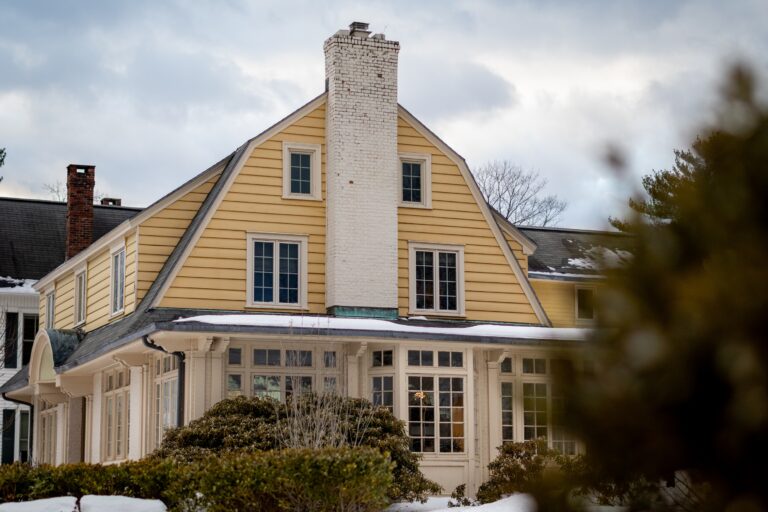
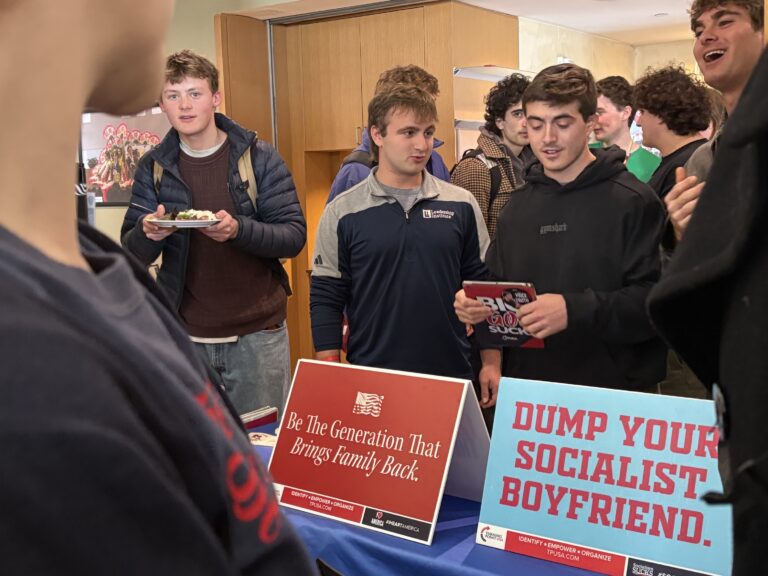
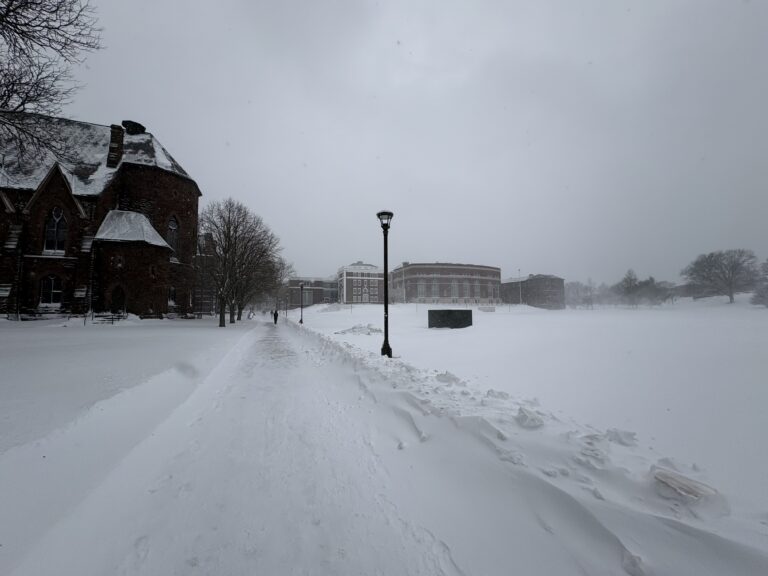
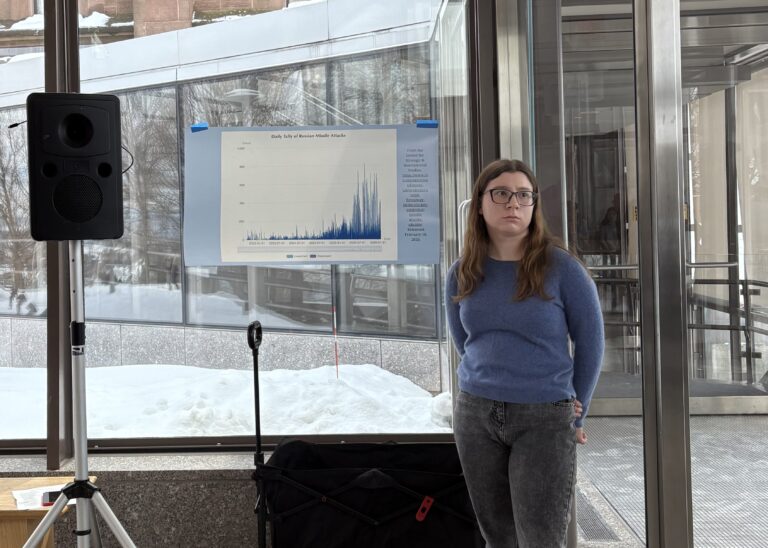


Leave a Reply